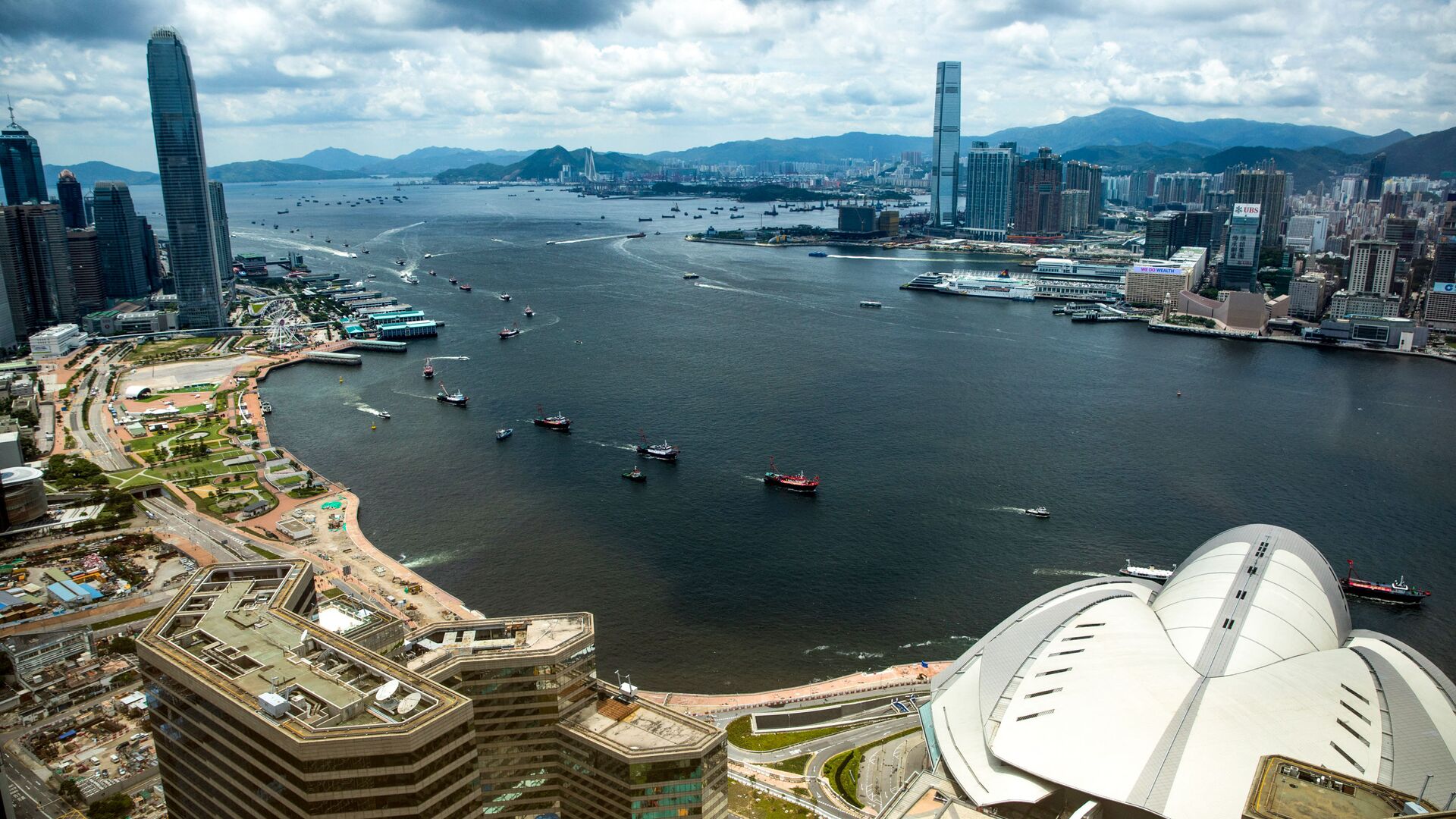Senior Chinese Legislative Body Agrees to Hong Kong’s Request to Interpret 2020 Security Law

© AFP 2023 / DALE DE LA REY
Subscribe
China’s 2020 National Security Law aroused fury across the West, where it was condemned as an “authoritarian” crackdown. However, those same nations have long supported anti-communist movements in Hong Kong and other parts of China as part of an effort to stop the rise of a socialist state with the potential to displace the US as a world leader.
On Tuesday, the National People’s Congress (NPC) Standing Committee heard a motion by Xia Baolong, director of the State Council’s Hong Kong and Macau Affairs Office, for the committee to interpret relevant parts of the 2020 Hong Kong National Security Law, according to a statement by the office of Hong Kong Chief Executive John Lee Ka-Chiu.
The committee’s decision to interpret the law will resolve months of political debate triggered by jailed media tycoon Jimmy Lai Chee-ying attempting to hire a British lawyer to defend him against charges in a Hong Kong court that he violated the security law by colluding with foreign forces. Lai has been a UK national since 1996, and is one of the major bankrollers of the Hong Kong protest movement that is against integration with the People’s Republic of China.
Hong Kong’s Department of Justice asked the courts to deny Lai’s attempts to hire British King’s Counsel Timothy Owen as his lawyer, raising objections that included the risk that a foreign national could learn state secrets during the trial, but the autonomy city’s Supreme Court ruled in Lai’s favor. Lee then appealed to the NPC Standing Committee, a legislative body that meets more regularly than the larger NPC, from whom its members are elected.
The law was passed by the Standing Committee in June 2020 as a means of resolving a crisis that began the previous summer, when protests driven by Western-backed demonstrators took to the streets to challenge a proposed extradition treaty between the Hong Kong Special Administrative Region (HKSAR) and the Chinese mainland. HKSAR has been a part of China since 1997, when it was returned following 150 years of British colonial rule, but it has retained parts of its liberal, capitalist system as part of a deal to ease its integration into the socialist PRC. Macau was returned to China from Portugal two years later under a similar agreement.
The 2020 law extended the reach of a previous National Security Law that had excluded HKSAR, banning four particular crimes of secession, subversion, terrorism, and collusion with foreign organizations, to the SAR as well. Detractors claimed Beijing was stifling dissent, and the US accused Beijing of authoritarianism and of breaking the 50-year autonomy deal that underpinned the city’s return to Chinese rule.
In March, Xia said it was possible that the arrangement, called “One Country, Two Systems,” could last far beyond its 2047 official expiration date. That is in keeping with comments by other Chinese figures, including Lee’s predecessor, Carrie Lam, and Chinese President Xi Jinping, who has said he hopes for the “long-term successful practice” of “One Country, Two Systems.”

